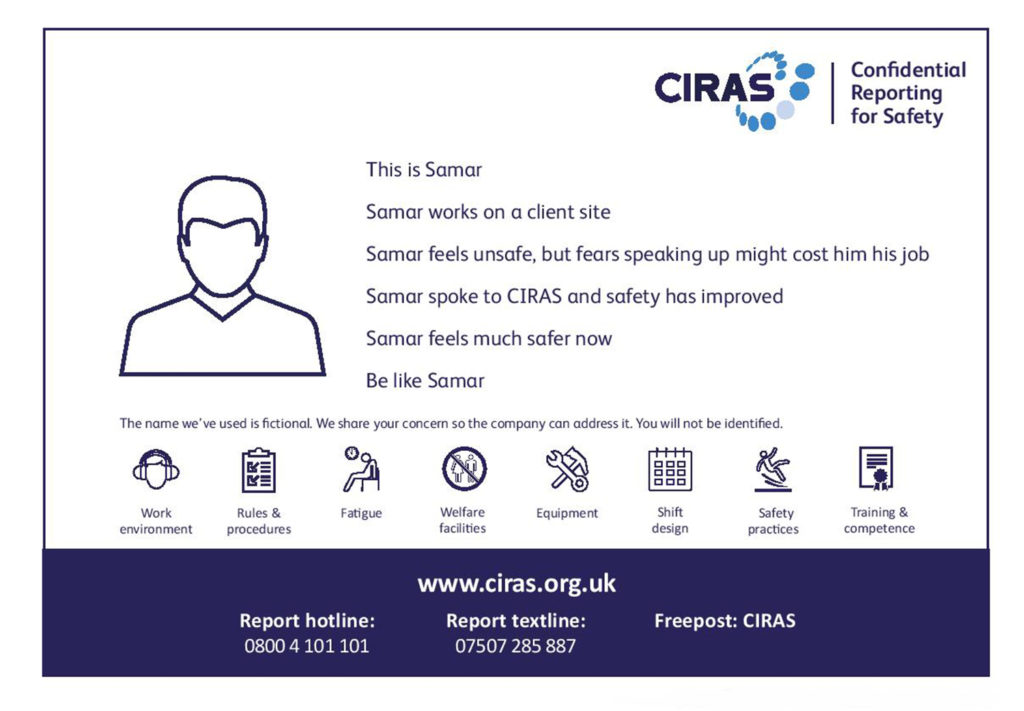You can share your health and safety concerns with the right people who can take action, without having to reveal your identity.
Think of a time you decided to keep your mouth shut. Perhaps you kept quiet to maintain harmony at home, because the conversation had already gone on too long, because the boss was there, or the people you were with seemed more interested in hearing their own voices.
Multiply that by everyone in your organisation and you can understand that there are many occasions when ideas, feedback, concerns or suggestions go unspoken and unresolved.
It is not surprising that you might not speak up if you think that what you have to say will be ignored. People usually need to feel that their concerns or ideas will be listened to and acted upon – making any perceived personal risks to speaking up worthwhile.
Teams that are ‘psychologically safe’ – where speaking up about concerns and learning from mistakes are encouraged and even welcomed – are especially important in safety-critical industries such as rail.
Unsafe team environments – where people are reprimanded for mistakes and there is no space for discussion, understanding and lessons learned – are likely to put people off raising concerns. That means any issues or mistakes will continue to happen again and again, putting people at risk.
Companies are only really listening to their employees when everyone feels able to speak out about health, wellbeing and safety, however they choose to do this. If you have a concern, you might speak out in an open forum, choose a quiet word with a supervisor, or stay silent.
There are many powerful reasons why you might not want to raise concerns unless your identity is protected – from past experiences to fear of the reaction. This is where the CIRAS confidential reporting service can play a part: your confidentiality is guaranteed.
A listening ear needs more than an open door. A psychologically safe environment also means respecting that everyone is different and that how people prefer to speak up reflects this.
Tackling workplace abuse
Consider the issue of workplace abuse. Sadly, the number of abusive incidents on the railway has not decreased in line with fewer passengers travelling. Transport workers are on the frontline for frustrated travellers when journeys don’t go to plan, or rules are in place that they disagree with, and this can translate into verbal and physical abuse.
People who have called CIRAS confidentially over the last three years to raise abuse-related concerns have on average put up with the situation for over a year, often longer. The vast majority explained they didn’t think reporting internally would make a difference – either they had tried and nothing changed, or they had lost faith in trying. Others said the company culture had kept them quiet.
CIRAS has heard from people who have been or are fearful of being abused because of inadequacies in security arrangements, staff numbers, crowd-control planning, lone working or use of technology. Once alerted, companies investigated and acted where appropriate to protect their staff. Managers did listen, but they only had the chance because CIRAS enabled these workers to speak out with confidence.
Most organisations want their people to come forward when they are suffering from abuse at work – and that is encouraged. But CIRAS is there if the alternative for you is to keep quiet and continue to suffer.
Diverse voices
CIRAS has noticed that people reporting abuse tend to be younger than those reporting other issues. The rail industry is full of individuals from a variety of backgrounds and with a unique range of experiences, so priorities and concerns also vary from one person to the next.
We might all identify different hazards or perceive different potential outcomes from an unresolved issue. Some concerns might affect a group of employees – such as young workers – more than others. If businesses can’t hear from all staff, they may be missing out on the need for change. It’s important for everyone to be able to speak up.
It can be daunting for anyone to raise a concern or idea. Even more so if you already feel ‘different’ in your team because of something integral to who you are – and are perhaps singled out for it. You might feel, rightly or wrongly, that speaking up could emphasise this and even impact work relationships. But a range of perspectives can highlight opportunities and improvements.
If your managers are only hearing some voices and not others, either because some speak up more than others or because some are listened to more than others, workplaces are less safe. By reporting confidentially, the focus can only be on the safety concern rather than who raised it, overcoming any unconscious bias.
Questioning assumptions or traditional ways of working is often necessary for a safer, healthier workplace. Including everyone’s perspective is important. If you have a concern, remember that your voice matters and needs to be heard, however you prefer to speak up.


